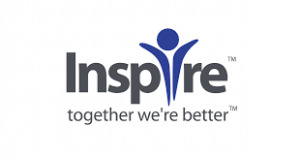Our Top 10 Most Popular Young Adult
Mental Health Resources in 2023
My Must Have Papers: Managing the Paperwork of Adulting
Managing the paperwork that comes along with “Adulting” is not fun. Our Young Adult Advisory Board and Family Advisory Board set out to make that task a little easier in this tip sheet.
“My Must Have Papers – Managing the Paperwork of Adulting” Tip Sheet. Also available as a comic, “Passport to Adulting: Managing Your Paperwork”.
STAY Tuned Podcast 10 Too Sick to Work Breaking the Narrative
Too Sick to Work? Breaking the Narrative – Podcast
STAY Tuned is a podcast made for and by young adults with mental health conditions. In Episode 10, Dr. Michelle Mullen discussed her work on preventing disability, why the language used to describe the mental health of young adults is so key and what can be done to change the narrative of self-blame.
Episode 10: “Too Sick to Work?” Breaking the Narrative.
All Episodes of S.T.A.Y. Tuned: Supporting Transition-Age Youth Podcast.
3 Tips to Improve Communications with Your Young Adult
This popular tip sheet for families includes 3 specific tips that can help you have better conversations and better relationships with the youth & young adults in your life. It’s worth reading and worth sharing! Read and download 3 Tips to Improve Communications with your Youth & Young Adult.
Accommodations at Work: What Do I Need to Know?
Work can be hard for young adults. And a mental health condition can make things complicated. Accommodations at your workplace can be one helpful solution. But what are they? Our new tip sheet, “Accommodations at Work: What Do I Need to Know?” can help young adults figure that out.
Applying for a Job: The Young Adults Guide, Revised 2023
This tip sheet is a good starting point for your young adult in their job search journey, covers many topics including resumes, job search boards, interviewing and follow-up. It also includes some great networking resources. Read and download “Applying for a Job – The Young Adult’s Guide” Tip Sheet.
Factors that Influence the Continuous Pursuit of Education, Training, and Employment among Young Adults with Serious Mental Health Conditions
This research brief describes the patterns of education, training, and employment activities for young adults with serious mental health conditions, and identifies factors that hinder or facilitate their ability to consistently pursue these activities. These findings can inform efforts to improve their long-term career trajectories. The “Factors” Research Brief.
STAY Tuned Podcast Episode 6: “We’re Working On It”
Join our conversation with Emma Narkewicz, MPA as we talk about Pre-employment Transition Services (Pre-ETS) in MA and dive into what it’s like being a young adult with mental health conditions entering the workforce and sustaining a career. Podcast episode 6: “We’re working on it!”.
Youth are Empowered by Leading Their Own IEP Meetings
Our comic series shows them how to do that. These comics walk young adults through how to participate fully, and lead, their IEP meetings. In the final comic, Mateo is moving towards graduation and prepping for his last IEP meeting of his high school career. Adulting Shorts Series, The “TEA” on IEPs
Engaging Young Adults in Work & School
Our free training for providers shares key info & resources related to the importance of engaging young adults in work and school endeavors, and strategies for doing this work. You also get an inside look into programs that are supporting young adults moving to adulthood.
Engaging Young Adults in Work & School – Training for Providers.
5 Ways Working Helps Me With My Mental Health
This popular blog post is an insightful read and reminder that employment can help manage your mental health and be a powerful tool in recovery. Read Five Ways Working Helps Me Manage My Mental Health Condition.











































